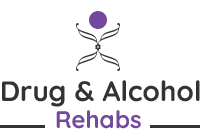Mindfulness-Based Therapy
WRITTEN BY SONIA BLUMBERG – JANUARY 19th, 2021
Addiction is a disease of the mind and the emotions that stem from multiple influencers. Many of the influencers that cause a person to become addicted to drugs, alcohol, or both, include trauma, abuse, neglect, the genetic history of addiction, as well as mental or emotional health diagnoses. Mindfulness-based addiction therapy works to help addicts and alcoholics learn to become more relaxed, more accepting of themselves, and enables them to be aware of how they are feeling.
People who suffer from substance use disorder, also referred to as addiction/alcoholism, use drugs and alcohol to feel better. Showing someone how to become aware of what they are reacting to and feeling is the beginning of healing their minds from their addictions.

Search For A Rehab Center Near You
What is Mindfullness-Based Therapy?
Mindfulness-based addiction therapy relies on teaching individuals how to become mindful through a set of various techniques. Mindfulness is when a person becomes fully present, aware of where they are in each moment while not overreacting emotionally or overwhelmed by the current experience.
As it is referred to in addiction treatment programs, the practice of being mindful is to help the patients become acutely aware of what they are sensing and feeling in the moment. Once they have learned to recognize their present state of being, they are told to let go of negative interpretation and judgment of the experience. Teaching recovering addicts and alcoholics how to be mindful involves several techniques they learn in a mindfulness-based therapy program.
Techniques in a Mindfulness-Based Therapy Program:
- Breathing methods
- Guided imagery
- Meditation
- Art and music therapy
- Acupuncture
- Massage
- Yoga
- Other practices to relax the body and mind to reduce stress
How Does Mindfullness Help in Addiction Treatment?
According to the National Center for Biotechnology Information advances in science and health, Mindfulness as a treatment for substance-use disorder proves to be helpful because anxiety and stress are typical symptoms that most individuals who are addicted to drugs and alcohol experience. The researchers from the institute write how Mindfulness reduces stress and tension, which then helps people entering recovery remain clean and sober.
The link between stress and addiction is well-known. Stress increases the likelihood of alcohol and drug use and can precipitate relapses following treatment. Clinicians and researchers recognize the critical need to incorporate stress management techniques into inpatient and outpatient treatment. The goal is to assist clients in replacing substance use with healthy coping skills when confronted with the inevitable stressors that threaten sobriety. This thematic issue of Substance Abuse is devoted to an emerging, promising area of research, known as mindfulness meditation as a therapy for addictive disorders…mindfulness meditation-based interventions could help improve treatment outcomes in addictive disorders. (NCBI)
What Treatment Centers Offer Mindfulness-Based Addiction Therapy?
Mindfulness-Based Addiction Therapy is becoming more available in treatment centers across the United States and other countries. The treatment centers that offer mindfulness-based treatment will also provide holistic therapy methods. The concept of holistic therapy means to treat the whole person, not just their substance use disorder. The whole person includes their mind, body, spirit, and emotions. A drug and alcohol addiction treatment center that provides holistic therapy will also offer mindfulness-based therapy methods as they are closely related.
The centers that we endorse for mindfulness-based addiction therapy rely on evidence-based forms of addiction treatment. Evidence-based forms of treatment include behavioral therapies and Pharmacotherapies. Behavioral therapies include dialectical behavioral therapy and cognitive behavioral therapy. Within these behavioral therapy methods, stress reduction and Mindfulness play a central role in helping the individual heal and overcome their substance use disorder and improve the quality of their recovery.
Pharmacotherapies include medication-assisted treatments, also known as MAT’s. MAT’s are safe and effective medications that help individuals detox from drugs, prevent relapse, and sustain long term abstinence from drug and alcohol use. Pharmacotherapies also play a key position in assisting the individual not to become too dependent on medications. As the patient becomes more present due to Mindfulness, they will likely not need to use MATs beyond their therapy.
